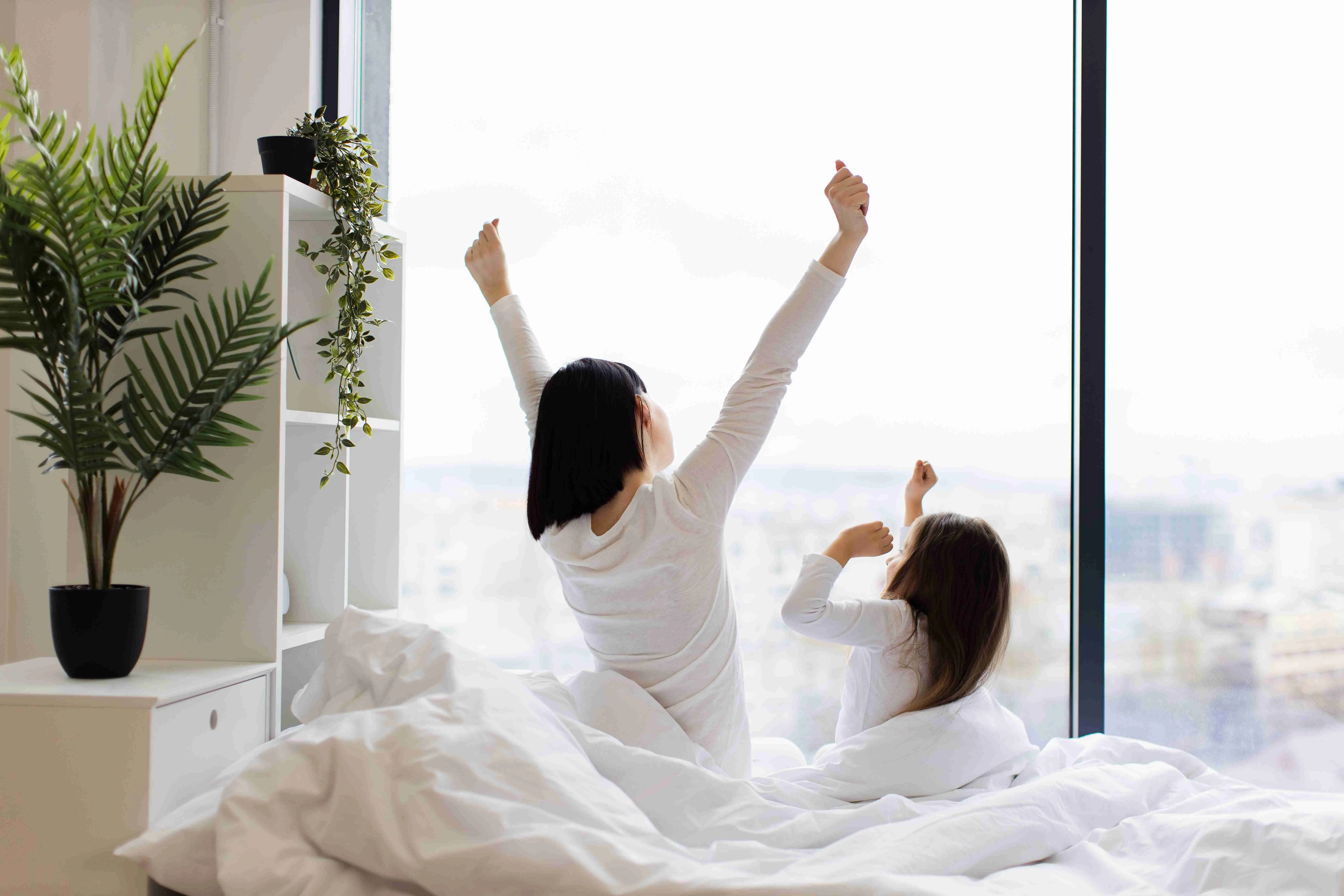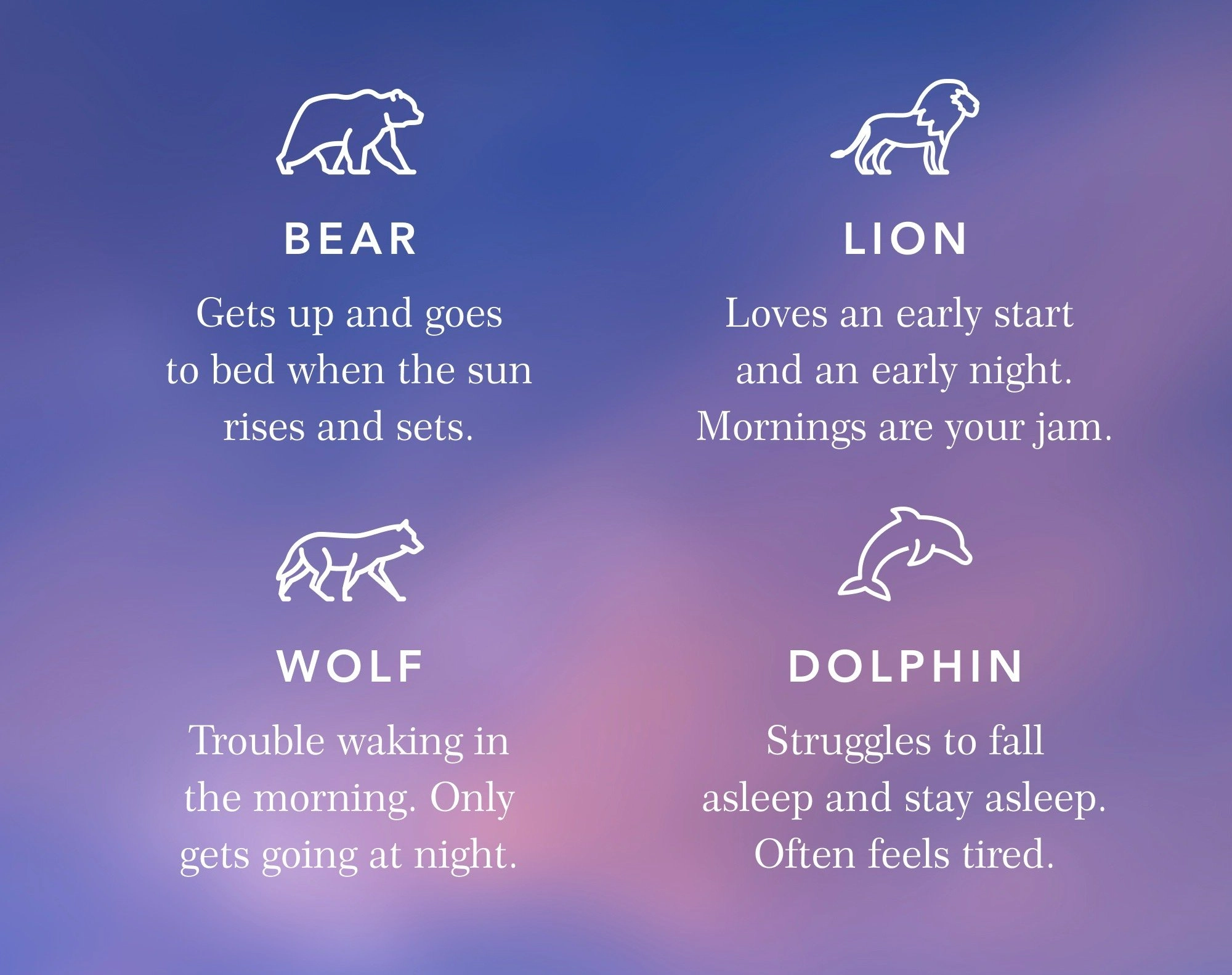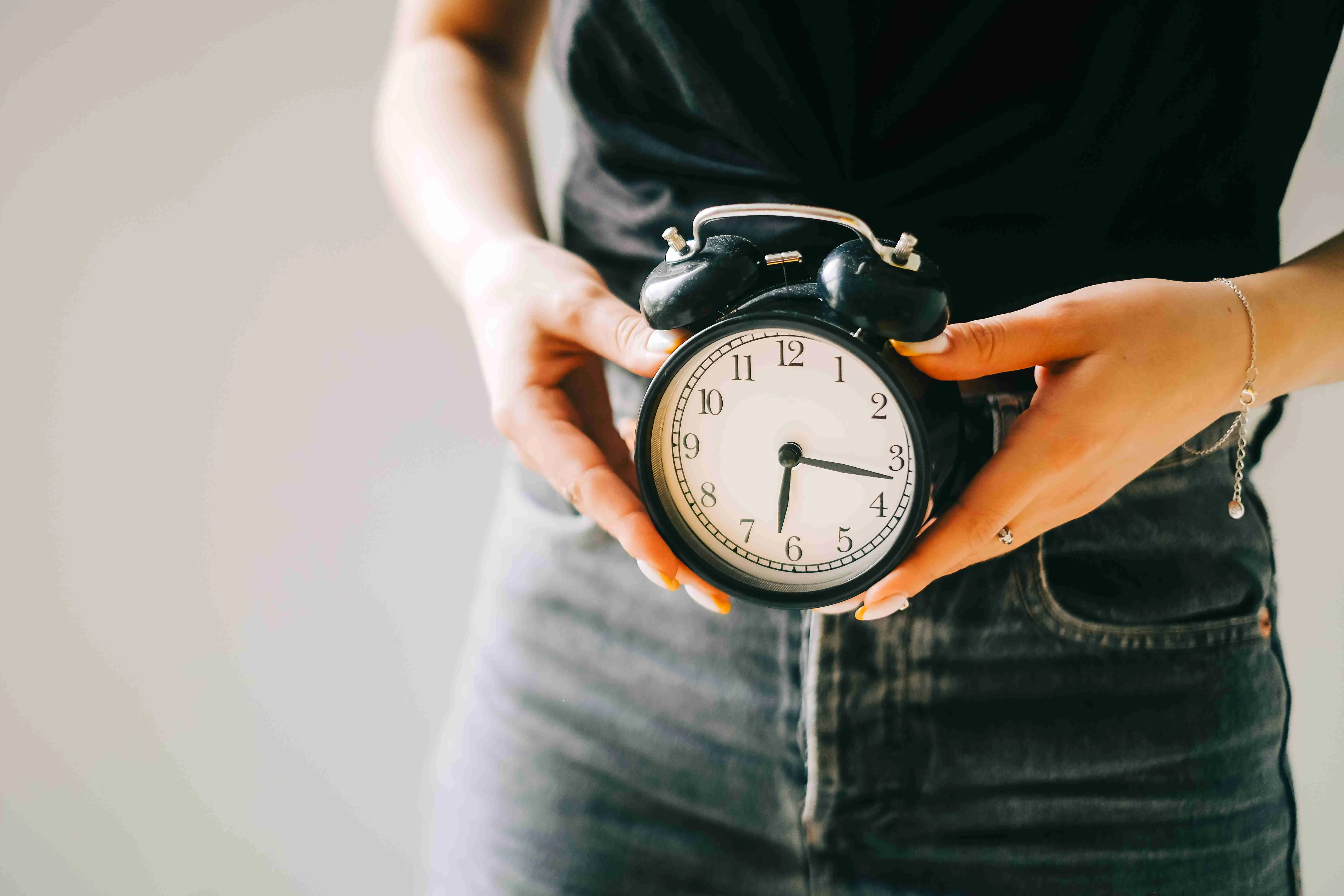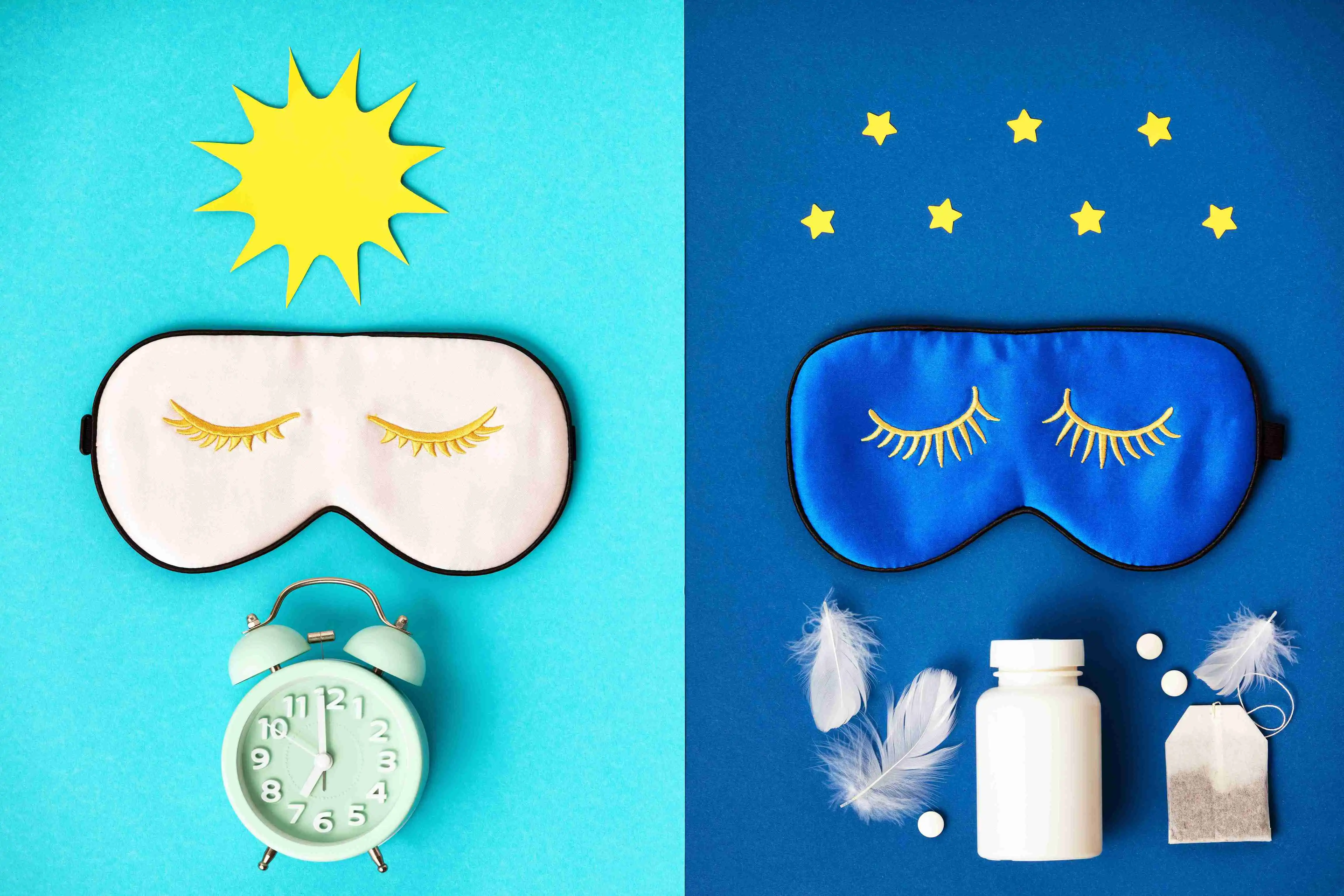Chronotypes are a fascinating concept that categorizes people based on their internal biological clock, whether they are morning people or night people. According to that, people can optimize many aspects of their lives and enjoy a more productive and fulfilling life.
In this article, we will delve into the concept of chronotypes, shed light on their different types, and discuss how we can use them to maintain a healthy and balanced lifestyle.
What are chronotypes?
Chronotypes refer to the individual variations in a person's sleep-wake patterns and their preference for certain times of the day.
These patterns are influenced by our internal biological clock, also known as the circadian rhythm. Understanding how sleep works can help explain why these natural tendencies exist and how they affect overall health and performance.
Each person has a unique chronotype that determines their natural inclination towards being an early bird or a night owl.
Importance of Chronotypes
Understanding and recognizing the different chronotypes is of utmost importance when it comes to optimizing productivity and overall well-being.
By identifying their chronotype, individuals can align their daily activities, such as work and exercise, with their natural energy peaks and troughs.
This can result in improved efficiency, as tasks that require high levels of concentration can be scheduled during periods of heightened alertness.
The Science Behind Chronotypes
The science behind chronotypes is rooted in the study of circadian rhythms, which are the internal biological processes that regulate our sleep-wake cycle.
These rhythms are influenced by various factors, including genetics, age, and external cues such as light and temperature.
What Determines Your Chronotype?

Your chronotype, or the natural inclination towards being a morning person or an evening person, is determined by a combination of factors. Knowing your chronotype by observing your sleep patterns or taking a chronotype can help you optimize your sleep schedule and improve your overall well-being.
Genetics
Genetics plays a significant role in determining your chronotype. Certain genes can influence your sleep patterns and preference for waking up early or staying up late.
For example, the PER3 gene has been associated with being a morning person, while the CLOCK gene has been linked to being an evening person. These genetic variations can affect your internal body clock and regulate the timing of your sleep-wake cycle.
Circadian Rhythm and Hormone Regulation
The chronotype of an individual refers to their personal preference for sleep and wake times. It is determined by a combination of factors, primarily the circadian rhythm and hormone regulation.
The circadian rhythm is an internal biological clock that regulates various physiological processes, including sleep-wake cycles. It is influenced by external cues such as light and temperature.
Hormone regulation also plays a crucial role in determining chronotype, with melatonin being the key hormone involved in sleep regulation.
Different individuals may have variations in their circadian rhythm and hormone levels, which ultimately determine their preferred sleep and wake times.
Seasonal and Environmental Influences
One of the main factors that determines your chronotype is seasonal influences. The changing seasons can affect your sleep patterns and overall energy levels.
For example, during the winter months, when the days are shorter and there is less sunlight, you may find yourself feeling more tired and sluggish. This can result in a shift in your chronotype, making you more of a night owl.
Another factor that influences your chronotype is environmental influences. The environment you live in can have a significant impact on your sleep-wake cycle and determine whether you are a morning person or a night owl.
For instance, if you live in a noisy urban area with constant disruptions, it may be difficult for you to get a good night's sleep and wake up feeling refreshed in the morning.
On the other hand, if you live in a quiet and peaceful environment, you may be more inclined to be an early riser.
Age
Age is another factor that can determine your chronotype. It is commonly observed that children and adolescents tend to be more inclined towards being night owls, while older adults are more likely to be early birds.
This shift in chronotype is due to changes in hormonal levels and biological processes that occur as we age. As we get older, our sleep patterns tend to become more regular and aligned with natural daylight hours, resulting in a preference for waking up early.
Lifestyle Factors
Lifestyle factors also play an important role in determining your chronotype. Your daily habits, such as your work schedule, social activities, and exposure to light, can influence your sleep patterns and preference for morning or evening.
For instance, individuals who work night shifts or have irregular sleep schedules may develop a tendency to be evening people. On the other hand, individuals who have consistent routines and regular exposure to natural light may lean towards being morning people.
Types of Chronotypes

There are several chronotypes, each associated with different sleep patterns and energy levels throughout the day.
Understanding what the 4 chronotypes are and your chronotype definition can help in scheduling activities and optimizing productivity based on individual energy patterns.
Lion
People with a lion chronotype are often referred to as "early birds" as they naturally wake up early in the morning and feel most alert and productive during the first half of the day. This chronotype is characterized by a preference for an earlier bedtime and an ability to fall asleep quickly and easily.
Individuals with a lion chronotype tend to have a stable and consistent sleep-wake schedule, going to bed early in the evening and waking up early in the morning without much effort. They often feel fully awake and energized upon awakening, ready to tackle the tasks of the day.
Individuals with a lion chronotype need to recognize and embrace their natural tendency for early mornings. By structuring their daily routines around their peak productivity times, lions can optimize their performance and achieve their goals more effectively. They may find it helpful to schedule important tasks or meetings during the morning hours when they are most alert and focused.
Bear
People with this chronotype are often referred to as "bears" because their sleep patterns align with the natural rhythms of the day. Individuals with a bear sleep chronotype tend to feel most awake and productive during the daytime hours and experience a dip in energy in the afternoon.
Bears typically have a regular sleep schedule and require about seven to eight hours of sleep each night to feel fully rested. They may find it easier to wake up in the morning and have a natural tendency to feel sleepy earlier in the evening.
This means that bears are more likely to be morning people and prefer to start their day early. They may feel most alert and focused in the morning, making it an ideal time for them to tackle complex tasks or engage in activities that require concentration.
Unlike other types of chronotypes, bears do not experience extreme fluctuations in energy levels throughout the day. They tend to have a steady level of alertness from morning till evening, with a slight dip in energy during the mid-afternoon.
This dip, often referred to as the post-lunch slump, is a common phenomenon for many individuals, including those with the bear chronotype. During this time, bears may experience a slight decrease in alertness and may benefit from taking short breaks or engaging in light physical activity to boost their energy levels.
Bears are often well-suited for traditional work schedules that follow a standard 9-to-5 routine. They thrive in environments where they can make use of their morning energy and maintain a consistent level of productivity throughout the day. However, bears may struggle with staying alert during late-night activities or working night shifts, as their natural sleep-wake cycle is not aligned with these hours.
Wolf
Wolves are often described as night owls, as they thrive in activities that require creativity and concentration during these late hours. However, this preference for a later sleep schedule can sometimes conflict with societal norms and routines, leading to potential challenges for individuals with a wolf chronotype.
One of the main challenges faced by wolves is the misalignment between their natural sleep-wake pattern and the typical 9-to-5 work schedule. Most jobs and societal obligations are structured around a standard morning-oriented schedule, which can make it difficult for wolves to fully adapt and perform at their best.
Wolves may struggle with feeling drowsy and groggy in the mornings, leading to decreased productivity and alertness during these early hours. This misalignment can also impact their overall sleep quality, as they may have to cut their sleep short to meet early morning commitments.
Many artists, writers, and musicians are known to have a wolf chronotype, as they find inspiration and motivation when the world is quiet, and distractions are minimized.
Wolves also tend to have better reaction times during the evenings, making them well-suited for activities that require quick thinking and reflexes.
Dolphin
Dolphins are characterized by their difficulty in falling asleep and maintaining a consistent sleep schedule.
They tend to be light sleepers and are more likely to experience fragmented sleep throughout the night. As a result, dolphins often wake up feeling tired and groggy, even after a full night's rest.
Due to their irregular sleep patterns, dolphins often struggle with daytime sleepiness and may find it challenging to stay alert and focused during the day.
They are more prone to experiencing insomnia and may have trouble falling asleep at night. This can lead to a cycle of sleep deprivation and daytime fatigue, impacting their overall well-being and productivity.
One possible reason for the dolphin chronotype is believed to be heightened sensitivity to external stimuli. Dolphins tend to be more reactive to noise, light, and other disturbances that can disrupt their sleep.
To manage their unique sleep pattern, dolphins may benefit from adopting certain strategies. Establishing a consistent sleep schedule is crucial for regulating their internal body clock. Creating a relaxing bedtime routine that includes practices such as dimming lights, avoiding electronic devices, and engaging in calming activities can help signal the body that it's time to wind down.
Additionally, dolphins may find it helpful to incorporate stress-reducing techniques into their daily routine. Stress and anxiety can exacerbate sleep difficulties, so practicing relaxation techniques such as deep breathing exercises, meditation, or yoga can promote better sleep quality.
How Chronotypes Impact Your Life
Chronotypes have a profound impact on our lives, influencing many things such as productivity, focus, cognitive performance, and other aspects.
Whether you belong to morning chronotypes or night chronotypes, understanding and embracing your natural energy patterns can help you make the most of your day.
Productivity and Focus
Knowing your chronotype can greatly enhance productivity and focus. Morning chronotypes tend to have higher energy levels in the morning and are more alert and focused during this time. They may find it easier to tackle complex tasks or engage in creative thinking during these hours.
On the other hand, night chronotypes tend to be more productive and focused in the evening, as their energy levels peak during this time.
By aligning your tasks with your natural energy patterns, you can maximize your productivity and make better use of your time.
Cognitive Performance
Chronotypes also play a significant role in cognitive performance. Morning chronotypes tend to perform better on cognitive tasks that require attention, memory, and problem-solving skills in the morning. Their brain functions optimally during this time, allowing them to process information more efficiently.
Night chronotypes, on the other hand, show enhanced cognitive performance later in the day. They may have better concentration and creativity during nighttime hours.
By understanding your chronotype, you can schedule tasks that require cognitive effort, accordingly, ensuring optimal performance.
Mental Health
Individuals with a morning chronotype, tend to align better with societal norms and may experience fewer mental health challenges related to sleep patterns.
Those with a delayed chronotype, commonly known as night chronotypes, may struggle with adhering to traditional sleep schedules and experience difficulties in maintaining good mental well-being.
On the other hand, individuals with an early bird chronotype may experience difficulty in adjusting to late-night activities or work schedules, leading to increased stress and anxiety.
Metabolism
Individuals with night chronotypes tend to have a higher risk of obesity and metabolic disorders. This could be attributed to various factors such as irregular eating patterns, increased consumption of unhealthy foods during nighttime hours, and reduced physical activity due to conflicting schedules with societal norms.
On the other hand, morning chronotypes tend to have a higher metabolic rate and higher body temperature during the day, allowing them to burn calories more efficiently.
Sleep Quality and Sleep Disorders
Sleep quality and sleep disorders are directly affected by our chronotypes.
People with morning chronotypes tend to go to bed early and wake up early. They typically have no trouble falling asleep and waking up refreshed.
On the other hand, those with late chronotypes, known as "owls," struggle to fall asleep early and may feel groggy in the mornings. This can lead to sleep disorders such as insomnia or delayed sleep phase disorder.
By recognizing our chronotype and adjusting our sleep schedules accordingly, we can optimize our sleep quality and reduce the risk of these disorders.
Social Life and Relationships
If someone is an early chronotype and goes to bed early, they may miss out on social activities that occur later in the evening. This can lead to feelings of isolation or FOMO (fear of missing out).
Conversely, individuals with late chronotypes may struggle to wake up early for work or school. This can result in difficulties in maintaining regular social commitments or being punctual.
Understanding our chronotype and communicating it with those around us can help create a supportive social environment that accommodates our sleep-wake preferences.
Tips for Optimizing Your Routine Based on Your Chronotype

Understanding your chronotype can be a game-changer when it comes to optimizing your daily routine.
By identifying whether you are a morning person, night owl, or somewhere in between, you can tailor your routine to align with your natural biological clock.
Tailoring Your Schedule
One important tip for optimizing your routine is to identify your peak energy levels throughout the day. For example, if you are a morning person, you may find that you are most alert and focused on the early hours of the day. In this case, it would be beneficial to schedule important tasks that require concentration during this time.
On the other hand, if you are a night owl or an "owl," you may find that your energy levels are highest in the evening. Adjusting your schedule to accommodate these natural energy peaks can lead to increased productivity and better performance.
Creating a Routine that Supports Your Natural Rhythm
Understanding your chronotype, whether you are a morning person, night owl, or somewhere in between, can provide valuable insights into how to structure your day for maximum effectiveness.
If you are a morning person, it is important to schedule your most important tasks and activities during the early hours when you are most alert and focused.
On the other hand, if you are a night owl, you may find that you are more productive and creative during the later hours of the day.
Plan Work and Productivity Around Your Energy Levels
Understanding your chronotype will help you determine the times of day when you are most alert and focused, allowing you to schedule your most important tasks during those peak periods.
For example, if you are a morning person, you may find that you are most productive and alert in the early hours of the day. In this case, it would be beneficial to schedule your most challenging or important work during this time.
On the other hand, if you are a night owl, you may find that your energy levels peak in the evening. In this case, it would be best to plan your most demanding tasks for later in the day when you are most mentally sharp.
Adjust Diet and Exercise Accordingly
Understanding your chronotype, whether you are a morning person or a night owl, can help you determine the best time for meals and physical activity.
If you are a morning person, it is advisable to have a healthy and satisfying breakfast to fuel your day.
On the other hand, if you are more productive in the evening, consider having a lighter dinner and focusing on a workout routine that energizes you during that time.
Know more about Eating Disorders and Sleep.
Use Light and Darkness to Regulate Circadian Rhythms
One tip for optimizing your routine based on your chronotype is to use light and darkness to regulate your circadian rhythm.
If you are a morning person, expose yourself to bright light in the morning to signal to your body that it’s time to wake up and be alert.
On the other hand, if you are a night owl, try to limit exposure to bright light in the evening to help your body wind down and prepare for sleep.
By aligning your exposure to light and darkness with your chronotype, you can enhance your energy levels and overall well-being.
Adaptation Strategies
If your current schedule does not align with your natural sleep-wake patterns, gradually adapting your routine to better suit your chronotype can be beneficial.
For example, if you are a night owl but currently have to wake up early for work, gradually shifting your bedtime and wake-up time later over a period of weeks can help you adjust to a more suitable schedule.
Additionally, creating a consistent bedtime routine and ensuring a comfortable sleep environment can also aid in optimizing your routine and improving sleep quality.
FAQs
How do I know what is my chronotype?
One way to determine your chronotype is by observing your sleep-wake habits over a while. Pay attention to when you naturally feel sleepy and when you naturally wake up without an alarm clock. This can give you an indication of whether you are more of a morning person or an evening person, another what is to do a sleep chronotype test.
What is the relation between chronotypes and circadian rhythm?
Chronotypes refer to the natural tendency of individuals to be either "morning people" or "evening people," based on their preferred times for sleep and wakefulness. On the other hand, circadian rhythm refers to the 24-hour biological cycle that regulates various physiological and behavioral processes in humans.
What is the best chronotype?
The best chronotype for an individual depends on their lifestyle and personal preferences. Some people function best in the morning and are highly productive during the early hours, while others are more creative and focused during the late evening.
Can my chronotype change over time?
Chronotypes can change over time due to various factors. For example, during adolescence, there is a shift in the sleep-wake cycle, causing teenagers to become night owls. Similarly, major life events such as parenthood or retirement can also impact one's chronotype.
Conclusion
Sleep chronotypes play a significant role in determining our sleep-wake patterns and overall functioning. Identifying and understanding our chronotype can help us optimize our daily routines and make the most out of our waking hours.
It is essential to respect our differences and align our schedules accordingly to maintain a healthy and balanced lifestyle. By recognizing and embracing our chronotype, we can enhance our productivity, improve our overall well-being, and achieve a better quality of life.
Karen Barnard
Karen is a Human Movement Science expert and a certified sports nutrition and massage therapist. At Sleepiverse, she combines her passion for human movement science and sleep health to educate herself and her readers about healthier sleep. In addition to writing articles, Karen manages a fitness studio offering private training, athletic conditioning, and sports massage therapy. She focuses on providing people with a holistic environment for people to reach their health goals, often incorporating stretch therapy to promote mental tranquillity and help people improve their sleep.


